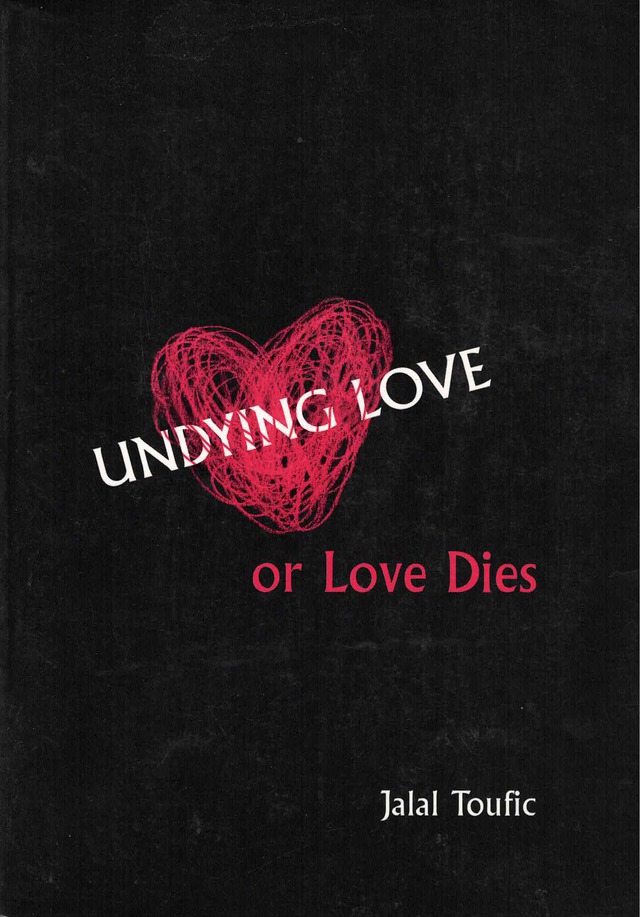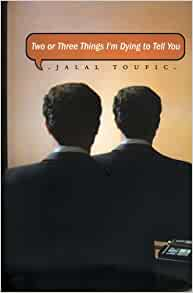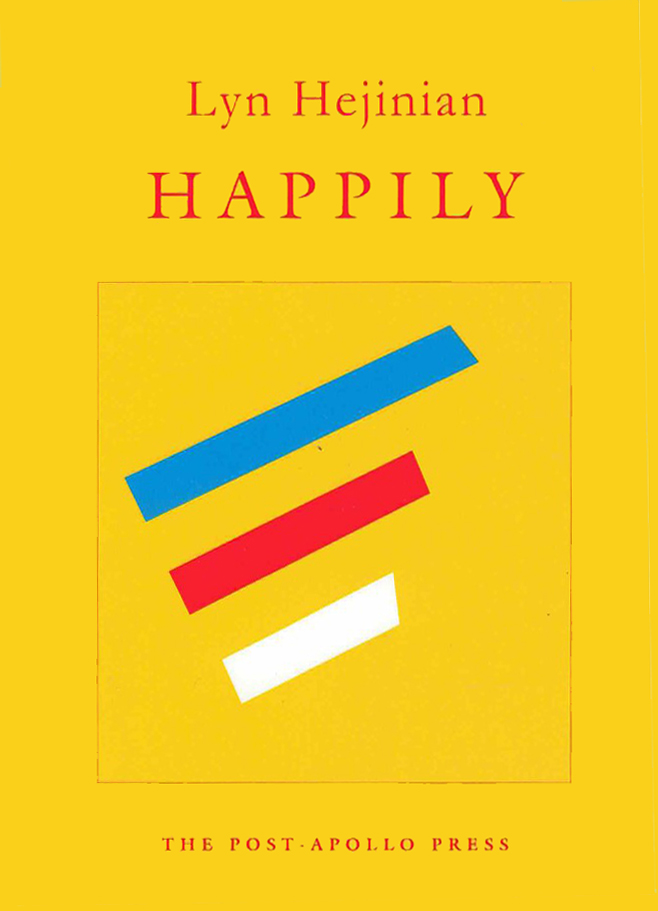Undying Love, or Love Dies
By Jalal Toufic
Out of Print
This title is available as a free PDF.
Download PDFFrom the Contemporary Poetry Series #2
This second [contemporary poetry] series actually started with Undying Love, or Love Dies by Jalal Toufic. I had asked Lyn Hejinian to write a blurb, for Undying Love and asked her to please write a very long blurb, because she would be alone on the page. I had begun to get weary of the convention that wanted to align a series of short blurbs, and so by giving more space I would have one opinion that carried a real analysis, and appreciation. This series in my opinion is just as valuable as the first one. The drawing is recognizable as it is in the same vein, and by the same artist and the format stays the same. The change is in the colors.
— Simone Fattal, Publisher
Jalal Toufic
Praise for Undying Love, or Love Dies
No brief comment can adequately describe this book; it is impossible even to categorize it. But this is true of Nietzsche’s writings, too, and it is with Nietzsche that I can most readily compare Jalal Toufic. Like Nietzsche, Toufic is a writer of philosophical aphorisms, manifestations of the intensest of experiences under pressure of incomparable intelligence. But Nietzsche was no miniaturist, and neither is Toufic. The pressure that the thinking must withstand makes the writing remarkably concise, but its power is enormous, its scope vast, its effect sweeping. This, Jalal Toufic’s fifth book, can be read as a single aphorism, an aphorism composed of aphorisms. And though it is the shortest of his books to date, it is perhaps also the greatest…. Toufic’s writings have already attracted something of a cult following; it is likely that Undying Love, or Love Dies will bring him a far larger readership. Certainly that is something to be hoped for. There is, in my opinion, no more subtle or powerful thinker today than Jalal Toufic, and none whose ideas are, in the end, more beautiful.
— Lyn Hejinian
Shakespeare, the myth of Orpheus, Sufi poetry and the Qu’ran are not just touched upon lightly here but deeply dissected, rearranged and returned to their transcendent order within Toufic’s amorous meditations. By turns mournful and magical, the book meanders through the Los Angeles of a decidedly cultured set, yet seems timeless in breadth, convincing in tone and earned in its broad field of reference… Set pieces include a breathless re-creation of the drama of Orpheus’s ascent from hell (he is a much more melancholic, flawed and regretful hero in Toufic’s telling) and a ludic, yet compelling discourse on the Islamic creation myth.
— Publishers Weekly
Toufic is at the core of a small but staunch group of Beiruti artists who have—collectively and separately—made a strong case for there being an intellectually rigorous, critically engaged, and ultra-contemporary platform for cultural practice developing in Lebanon and in the region.… Toufic is one of the most active and ambitious figures in the Arab world who—book by book—has endeavored to sculpt a critical, theoretical language of the Arab world.
— The Daily Star, Lebanon





I write for myself as one of the readers of my work; were it otherwise my writing, including my responses in this interview, would not be a dialogue… I also write for and to my amnesiac version in an altered realm of consciousness that he found himself in after a lapse of consciousness and that I found myself out of after a lapse of consciousness: he needs my help to achieve a modicum of detachment from the stream of thoughts linking in his head on their own; from compulsions; from the insinuating voices-over that assail him; and from hallucinations. I also write to my untimely collaborators, and to the forgetful grateful reader, i.e. the generous reader.
— Jalal Toufic, “An Interview by Kaelen Wilson-Goldie” in towards a foreign likeness bent